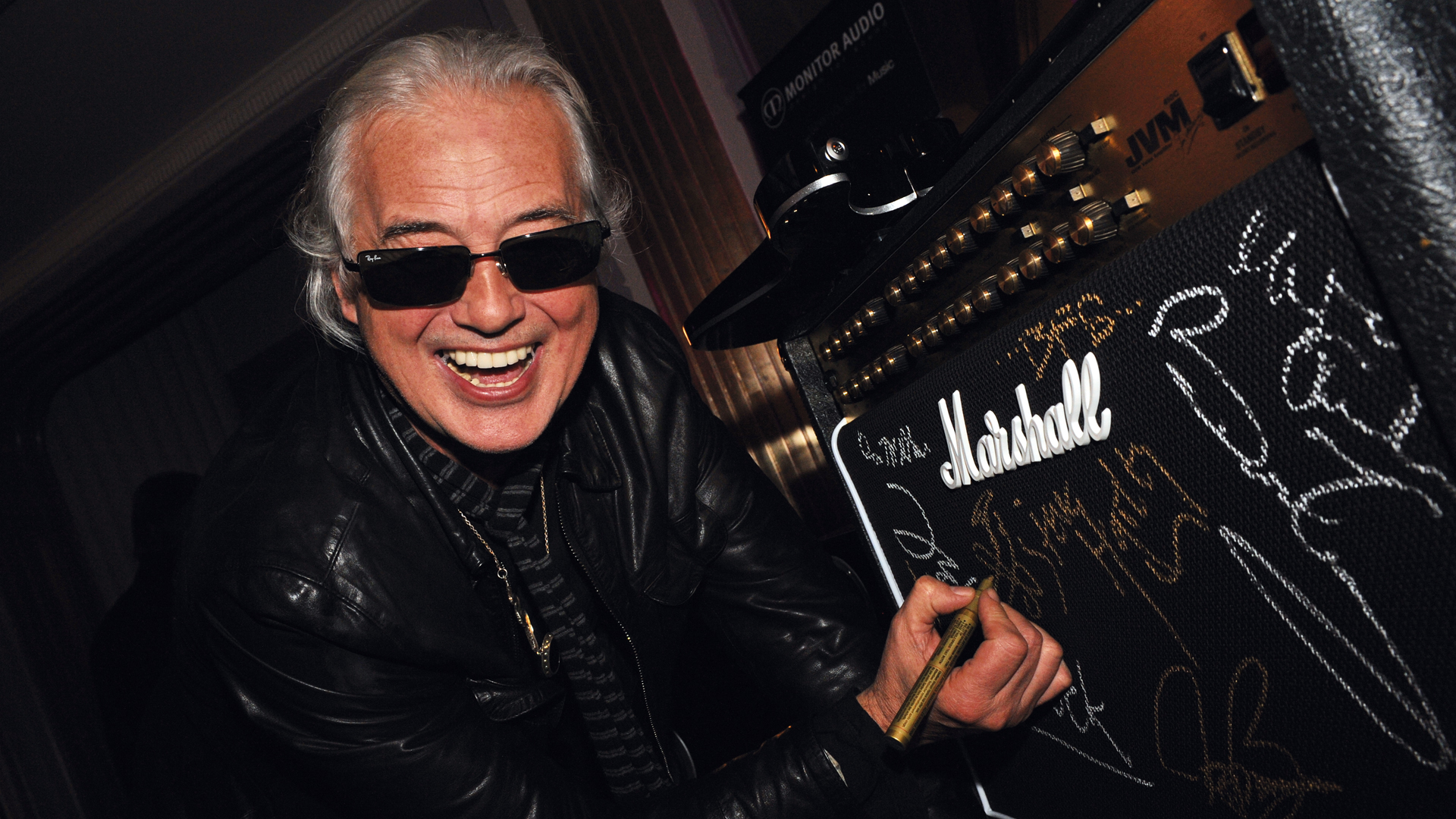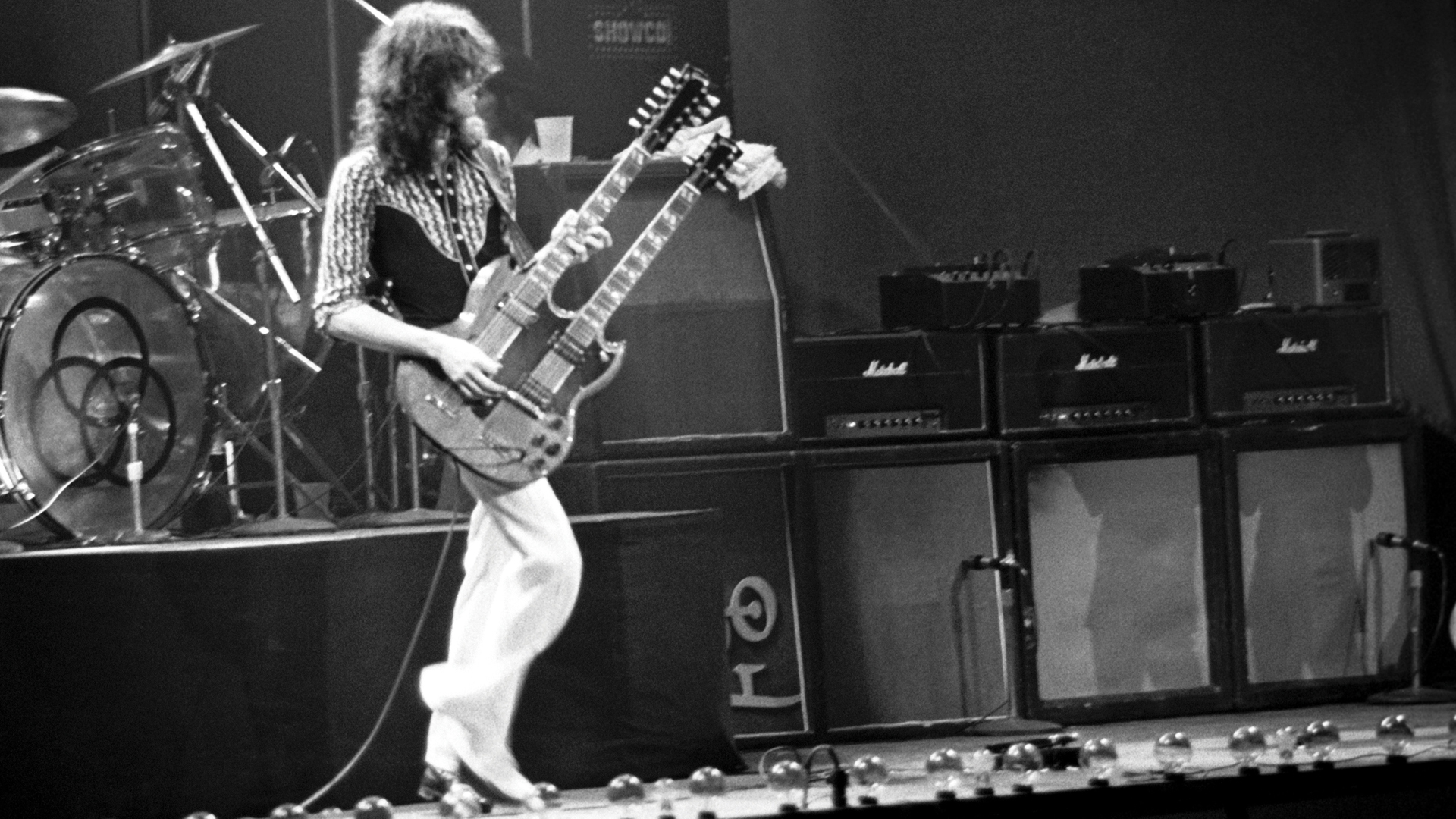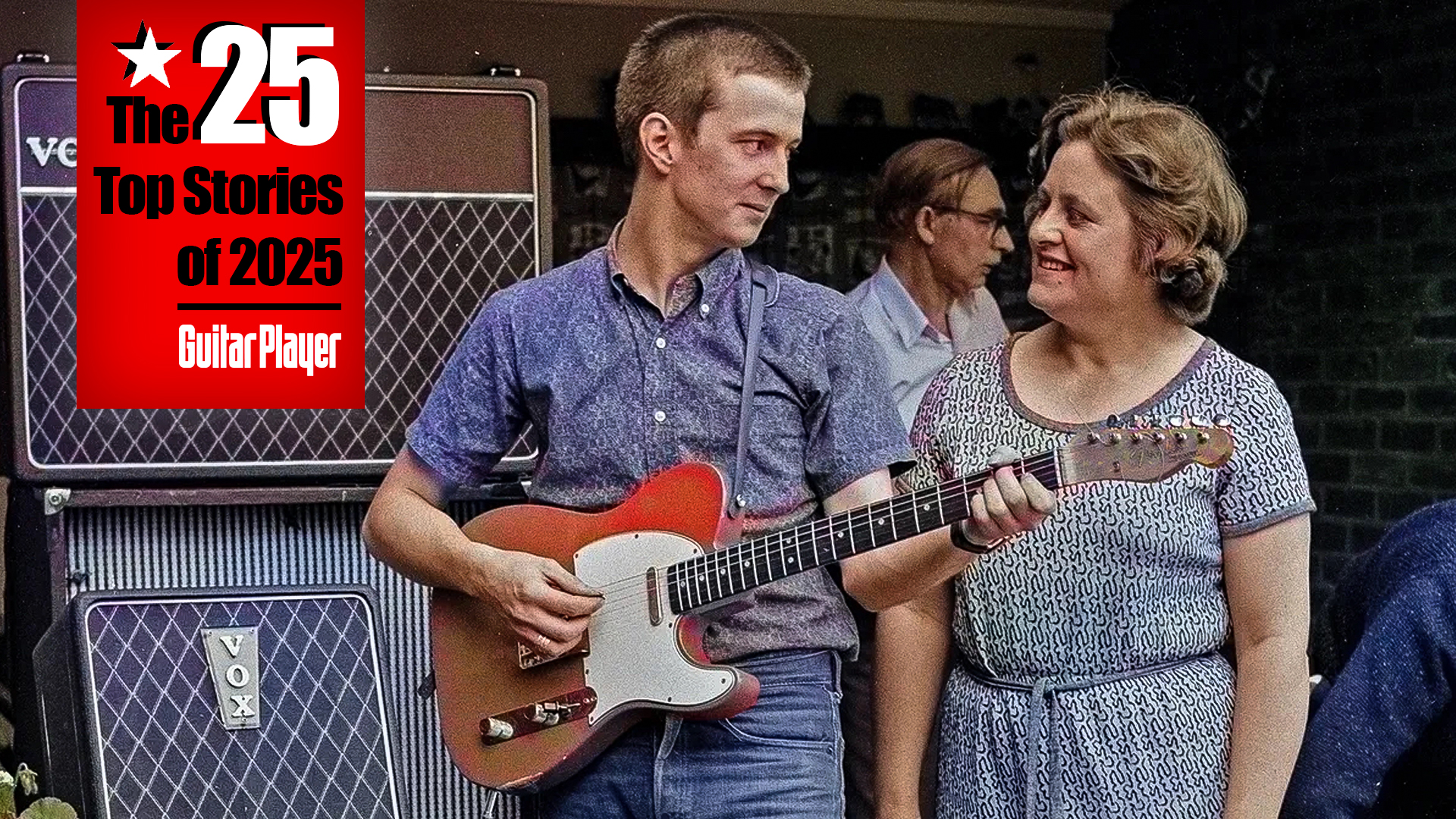“It did all those Led Zeppelin tours and all the recordings. It did flippin’ everything, y’know?” Jimmy Page reveals “the best amp that I’d ever had in my collection”
The heavily modified Marshall was in use from 1969 on and is the amp heard on 'Presence,' says Page

Jimmy Page used a number of combos and heads during his time with Led Zeppelin. They include his Marshall Plexi 1959SLP and the modified two-channel 1959 Supro Coronado 1690T combo that fuels the fury on Led Zeppelin’s 1968 debut album.
But as Page tells Guitar Player in the December 2024 issue, one amp stands above the rest for him. That’s his 1969 Marshall JMP Super Bass 100, Page’s principal amp for recording and live work from 1969, which he’d had heavily modified by amp tech and Unicord/Marshall man Tony Frank in the late ’60s. (Frank is often credited as being the inventor of the master volume control in the 1970s, as well.)
Page describes his original Super Bass as, “a really hot-wired Marshall, the main one that I would play all the way through my career. It was just the best amp that I’d ever had in my collection. And it was so roadworthy. It did all those Led Zeppelin tours, and all the recordings. It did flippin’ everything, y’know?”
Since the ’80s heyday of Soldano and Marshall Silver Jubilees, many of us likely think of a “hot-wired” Marshall as one that boasts more gain and onboard saturation — and perhaps even features diode clipping. What Page means by the term — or at least what Tony Frank’s mods would produce for him — is an appreciably cleaner amp than either a classic Super Bass or a Super Lead. It’s worth noting that in 1970, it was less common to mic guitar amps onstage, and monitor systems were still in their infancy as late as 1969. Page’s impetus then with the changes he wanted made to his Super Bass — including swapping out the stock EL34 power tubes for much cleaner 6550s — was to increase volume, clarity and dynamic range, choices that speak as much to his distinctive playing style as they do to the audio demands of the time.
Throw on your vinyl copy of Zeppelin’s 1977 dusky jewel Presence (you do own a vinyl copy of Presence, don’t you?). Listen to the glistening phased minor-chord slashes of “Achilles Last Stand,” the popping Leo Nocentelli–style funk stabs of the majestic “Royal Orleans” or the syncopated rockabilly double-stops of “Hots on for Nowhere.” Presence is a master class in the art of how to make “clean” sound “heavy.”
Page describes Presence as “the best example of the sound of my Marshall Super Bass, because it was an album we made in about three weeks, in Munich, Germany. So I wanted to work very efficiently, and that entire album is all Super Bass, along with mostly my Number One 1959 Les Paul.”
Both the Super Bass and Page’s Supro Coronado combo were the basis for new Page-approved amplifiers from Sundragon, the boutique amp company he founded in 2017 with former Marshall/Vox executive VP and Park Amps chief Mitch Colby, and noted producer and vintage gear collector/curator Perry Margouleff. It was Margouleff who, among other things, famously rescued Page’s long-missing 1960 Gibson Les Paul “Black Beauty” from obscurity back in 2014.
All the latest guitar news, interviews, lessons, reviews, deals and more, direct to your inbox!
The resulting signed, limited-edition models — the Sundragon 12-inch combo and Super Dragon 100-watt head and 4x12 cabinet — not only passed what Page calls his own “acid test” for authenticity but also quickly sold out despite their hefty list price of $12,500 and $22,500, respectively. Adding to Page’s current enthusiasm is the imminent release of Sundragon’s brand-new Nymph, a more compact, low-wattage take on the Sundragon in a one-watt (switchable to ¼-watt) single eight-inch combo with two 12AX7s, which will be widely available in 2025
Pick up Guitar Player’s December 2024 issue, the last in the magazine’s 58-year history, to learn more.

A former editor at Guitar Player and Guitar World, and an ex-member of Humble Pie, Mr. Bungle and French band AIR, author James Volpe Rotondi plays guitar for the acclaimed Led Zeppelin tribute, ZOSO, which The L.A. Times has called “head and shoulders above all other Led Zeppelin tribute bands.” Find JVR on Instagram at @james.volpe.rotondi, on the web at JVRonGTR.com, and look for upcoming tour dates at zosoontour.com
